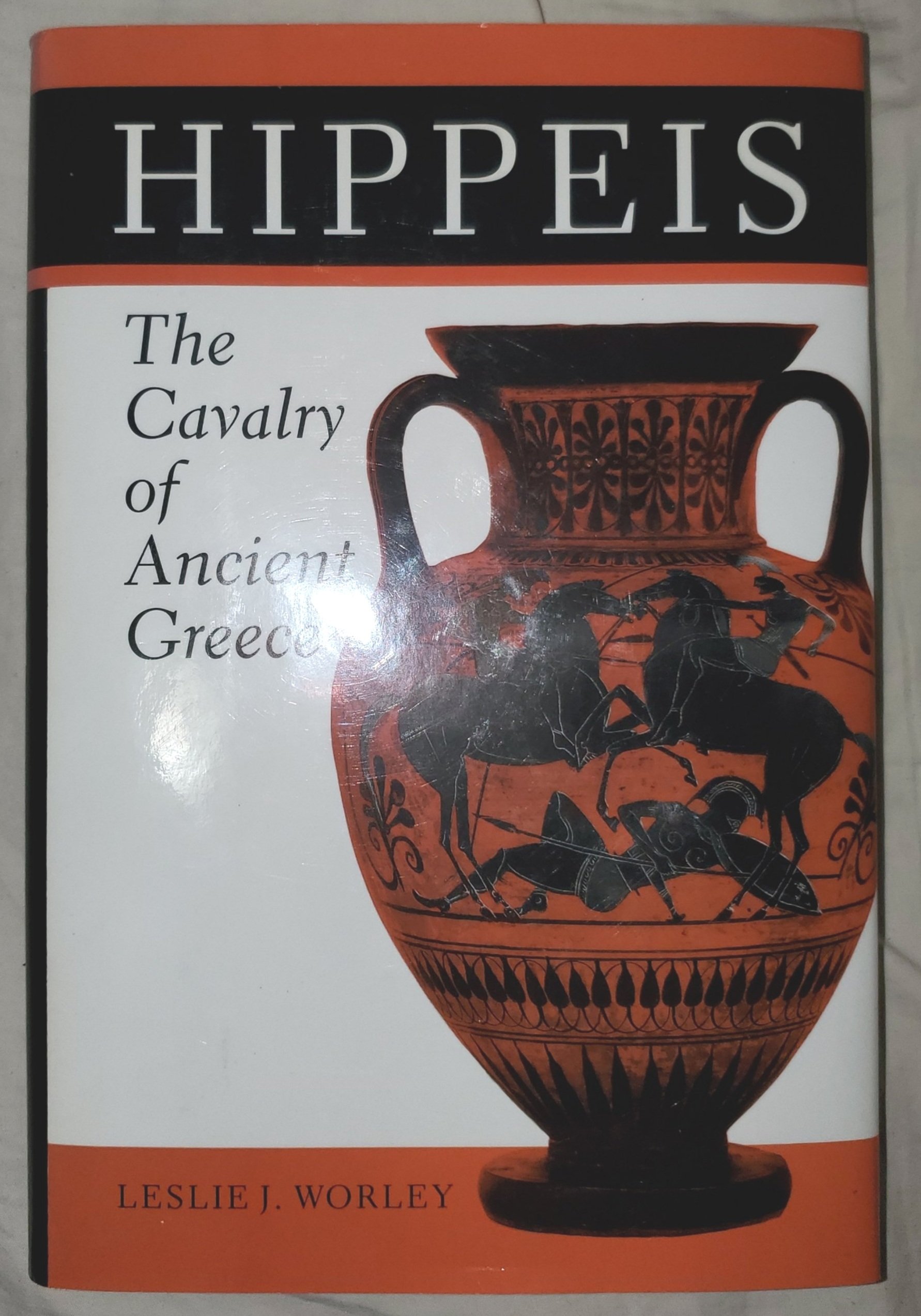 Image 1 of 1
Image 1 of 1


The Western Way of War | Infantry Battle in Classical Greece
Author - Victor Davis Hanson
Year published - 1989
Published by - Alfred A. Knopf
Book Format - Hard Cover
Genre - Greek & Roman
Summary
The origins of Western warfare lie in classical Greece, on the battlefields of Marathon and Delion, and in the strange, terrible head-on collision of Thebans and Spartans at Koroneia. Instead of the ambush, skirmish, or single combat between heroes, the Greeks of the classical age devised a ferocious, brutal, brief, and very destructive form of combat that used armed men of all ages. With this technique, they invented the central act of Western warfare--the decisive infantry battle. In this bold and original study, Victor Davis Hanson presents a new interpretation of Greek warfare and what took place on the battlefield. He argues that the same concept that shaped democracy--an unequivocal, instant resolution to dispute--also spawned the horrific nature of hoplite phalanx battles, and that Western culture may have learned the wrong lessons from them. The Western Way of War draws from an extraordinary range of sources--Greek poetry, drama, and vase painting, as well as historical records--to fashion the first dramatic narrative of the actual mechanics of classical Greek warfare. Approaching his subject from the vantage point of the infantryman, Hanson explores everything from the brutal spear-thrusting and shield-pushing in the phalanx, and the difficulty of fighting in bronze armor, to the mass panic and hysteria. He describes the physical condition and age of the men and their commanders, their weapons, their capabilities, their spirit and morale, and their wounds; and covers the social and political aspects of the soldier's experience, revealing how profoundly the simple, brief, and brutal misery of infantry battle defined a man's entire relationship with his family, his community, and his country. Hanson's compelling account of what happened on the killing fields of the ancient Greeks raises new issues and questions old assumptions about the raison d'être for war.
Notes -
Author - Victor Davis Hanson
Year published - 1989
Published by - Alfred A. Knopf
Book Format - Hard Cover
Genre - Greek & Roman
Summary
The origins of Western warfare lie in classical Greece, on the battlefields of Marathon and Delion, and in the strange, terrible head-on collision of Thebans and Spartans at Koroneia. Instead of the ambush, skirmish, or single combat between heroes, the Greeks of the classical age devised a ferocious, brutal, brief, and very destructive form of combat that used armed men of all ages. With this technique, they invented the central act of Western warfare--the decisive infantry battle. In this bold and original study, Victor Davis Hanson presents a new interpretation of Greek warfare and what took place on the battlefield. He argues that the same concept that shaped democracy--an unequivocal, instant resolution to dispute--also spawned the horrific nature of hoplite phalanx battles, and that Western culture may have learned the wrong lessons from them. The Western Way of War draws from an extraordinary range of sources--Greek poetry, drama, and vase painting, as well as historical records--to fashion the first dramatic narrative of the actual mechanics of classical Greek warfare. Approaching his subject from the vantage point of the infantryman, Hanson explores everything from the brutal spear-thrusting and shield-pushing in the phalanx, and the difficulty of fighting in bronze armor, to the mass panic and hysteria. He describes the physical condition and age of the men and their commanders, their weapons, their capabilities, their spirit and morale, and their wounds; and covers the social and political aspects of the soldier's experience, revealing how profoundly the simple, brief, and brutal misery of infantry battle defined a man's entire relationship with his family, his community, and his country. Hanson's compelling account of what happened on the killing fields of the ancient Greeks raises new issues and questions old assumptions about the raison d'être for war.
Notes -




